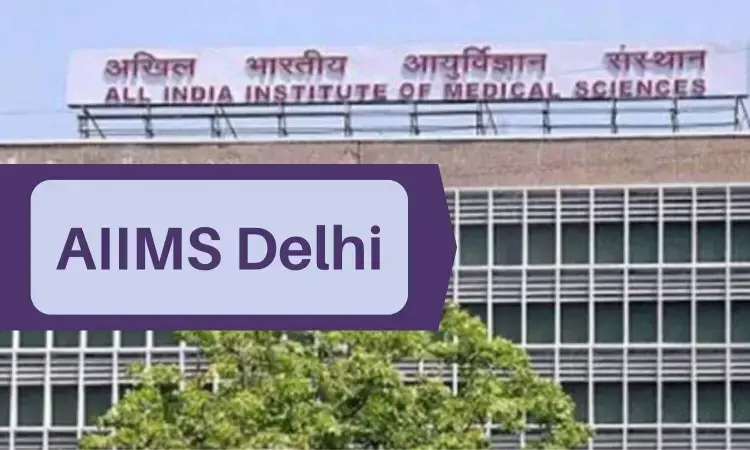- Home
- Medical news & Guidelines
- Anesthesiology
- Cardiology and CTVS
- Critical Care
- Dentistry
- Dermatology
- Diabetes and Endocrinology
- ENT
- Gastroenterology
- Medicine
- Nephrology
- Neurology
- Obstretics-Gynaecology
- Oncology
- Ophthalmology
- Orthopaedics
- Pediatrics-Neonatology
- Psychiatry
- Pulmonology
- Radiology
- Surgery
- Urology
- Laboratory Medicine
- Diet
- Nursing
- Paramedical
- Physiotherapy
- Health news
- Fact Check
- Bone Health Fact Check
- Brain Health Fact Check
- Cancer Related Fact Check
- Child Care Fact Check
- Dental and oral health fact check
- Diabetes and metabolic health fact check
- Diet and Nutrition Fact Check
- Eye and ENT Care Fact Check
- Fitness fact check
- Gut health fact check
- Heart health fact check
- Kidney health fact check
- Medical education fact check
- Men's health fact check
- Respiratory fact check
- Skin and hair care fact check
- Vaccine and Immunization fact check
- Women's health fact check
- AYUSH
- State News
- Andaman and Nicobar Islands
- Andhra Pradesh
- Arunachal Pradesh
- Assam
- Bihar
- Chandigarh
- Chattisgarh
- Dadra and Nagar Haveli
- Daman and Diu
- Delhi
- Goa
- Gujarat
- Haryana
- Himachal Pradesh
- Jammu & Kashmir
- Jharkhand
- Karnataka
- Kerala
- Ladakh
- Lakshadweep
- Madhya Pradesh
- Maharashtra
- Manipur
- Meghalaya
- Mizoram
- Nagaland
- Odisha
- Puducherry
- Punjab
- Rajasthan
- Sikkim
- Tamil Nadu
- Telangana
- Tripura
- Uttar Pradesh
- Uttrakhand
- West Bengal
- Medical Education
- Industry
Delhi AIIMS Director vows to make campus drug-free, issues stern directions

"Where the contravention involves quantity lesser than commercial quantity but greater than small quantity, the offender will face rigorous imprisonment for a term which may extend to 10 years and with fine which may extend to Rs 1 lakh; where the contravention involves commercial quantity, the offender will face rigorous imprisonment for a term which shall not be less than 10 years but which may extend to 20 years and shall also be liable to fine which shall not be less than Rs 1 lakh but which may extend to Rs 2 lakh," the hospital said.
New Delhi: In a bid to make the premier health Institute, All India Institute of Medical Sciences (AIIMS), New Delhi campus drug-free, the hospital administration has issued directions for sensitisation of staff members and students about various punitive provisions of the Narcotic Drugs and Psychotropic Substances Act.
The All India Institute of Medical Sciences here on Tuesday declared its premises a drugs-free zone, recommending action against staff, students, and patients/attendants violating the Narcotic Drugs and Psychotropic Substances Act (1985) on its campus.
In an office memorandum, AIIMS Director M Srinivas asked all heads of departments to bring to the attention of the staff and students working under them the various provisions including that of fine and imprisonment under the NDPS Act.
"The entire world is facing the menace of drug addiction, including many educational institutions, which has a devastating impact on the addicts, their families and a large section of the society. Our main objective is to reach out to the masses and spread awareness about substance abuse," AIIMS said in an official notification.
Also Read:Free drugs, diagnostics to all in new health policy: Govt
"Anyone who contravenes the NDPS Act will face punishment based on the quantity of the banned substance," it added.
"Where the contravention involves quantity lesser than commercial quantity but greater than small quantity, the offender will face rigorous imprisonment for a term which may extend to 10 years and with fine which may extend to Rs 1 lakh; where the contravention involves commercial quantity, the offender will face rigorous imprisonment for a term which shall not be less than 10 years but which may extend to 20 years and shall also be liable to fine which shall not be less than Rs 1 lakh but which may extend to Rs 2 lakh," the hospital said.
The notification said that the list under the NDPS Act mentions the names of all substances banned or controlled in India. The list uses the International Non-proprietary Name (INN) of the drugs, but in some cases mentions drugs by their chemical name.
Widely-known drugs such as ganja, cocaine, heroin, etc. are mentioned by those names. Cultivation, production, manufacture, possession, sale, purchase, transport, storage, consumption or distribution of any of the banned substances and as per the rules or orders and conditions of licences that may be issued, is illegal.
The hospital also requested all HoDs to bring this to the knowledge of the staff and students working under them. The security personnel have also been instructed to not to allow the patients, attendants, visitors and staff members to use drugs, in any form, within the premises of AllMS Delhi.
"If outside personnel or any drug peddler are found selling drugs, the security personnel are instructed to take video/photograph of the culprit and he/she should be handed over to the police immediately and be completely banned from entering the AllMS premises in near future," the notification read.
It added that employees, doctors or students wanting to seek help for substance use problems can do so in the psychiatry OPD, adding that they will be provided treatment while maintaining confidentiality. Treatment will not be linked to administrative action or punitive measures, the notification added.
Also Read:AIIMS cyber attack: Delhi Police seeks data on Chinese hackers from CBI-Interpol
Kajal Rajput joined Medical Dialogues as an Correspondent for the Latest Health News Section in 2019. She holds a Bachelor's degree in Arts from University of Delhi. She manly covers all the updates in health news, hospitals, doctors news, government policies and Health Ministry. She can be contacted at editorial@medicaldialogues.in Contact no. 011-43720751


